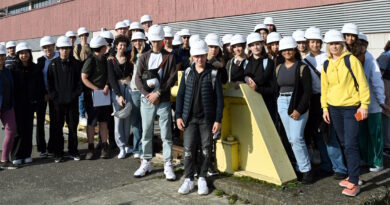Why learning about media literacy is crucial in our age and how can Media Studies students benefit from it?
Media Studies students have recently been introduced to multiple media theories and learned to emphasize the importance of navigating through various media platforms sensibly in a responsible manner.
Media literacy is a crucial component of modern IB schools’ Media Studies curriculum, preparing graduates to navigate an increasingly complex media landscape. In an era where information is abundant and accessible across various platforms, including social media and films, the ability to critically analyze and evaluate media content is essential. Media literacy equips students with the skills to discern credible sources from misinformation, fostering informed and responsible citizens.
In the context of social media, media literacy helps students understand the algorithms that influence their news feeds and the potential biases present in the content they consume. It encourages them to question the reliability of information and recognize the impact of social media on public opinion and personal behavior. By analyzing different perspectives and identifying manipulative tactics, students become more adept at making informed decisions and engaging in meaningful online discourse.
Films, as another significant media platform, offer rich opportunities for developing media literacy. Through studying films, students learn to deconstruct narrative techniques, visual storytelling, and ideological messages. This critical examination helps them appreciate the power of media in shaping cultural norms and societal values. Understanding the subtleties of film language enables students to engage more deeply with cinematic works and fosters a greater appreciation for diverse artistic expressions.
Incorporating media literacy into the IB curriculum ensures that graduates are not only consumers but also critical thinkers and creators of media content. They learn to produce media that is ethical, accurate, and reflective of diverse viewpoints. This competency is invaluable in a world where media plays a pivotal role in shaping public discourse and individual perceptions.
Ultimately, media literacy in IB schools’ Media Studies curriculum empowers students to navigate various media platforms with discernment and creativity. It prepares them to be proactive participants in the media-saturated world, equipped with the tools to critically analyze, produce, and share content responsibly. This holistic approach to media education is essential for developing thoughtful, informed, and engaged global citizens.




